Coming Soon
By Bowdoin MagazineHouse lights dim, and the room vibrates with palpable anticipation. The air is sweet, buttery, familiar. Movies unite us with shared experiences and connect us to moments, often important occasions from our lives, whether we realize it at the time or not. Moviegoing is an almost singular experience in that it works for groups, families, a date, or time alone; it is as malleable as the art form itself.
And, of course, summertime and trips to the movies are inextricably linked for many of us—this summer, especially, as we emerge from the pandemic lockdown and look forward again to such activities we once took for granted.
We asked faculty, students, and alumni to talk to us about film and what it means to them.
Photographer Séan Alonzo Harris visited a few of Maine’s movie houses to set the scene and found them in a state of suspended animation between then, now, and what is coming soon.
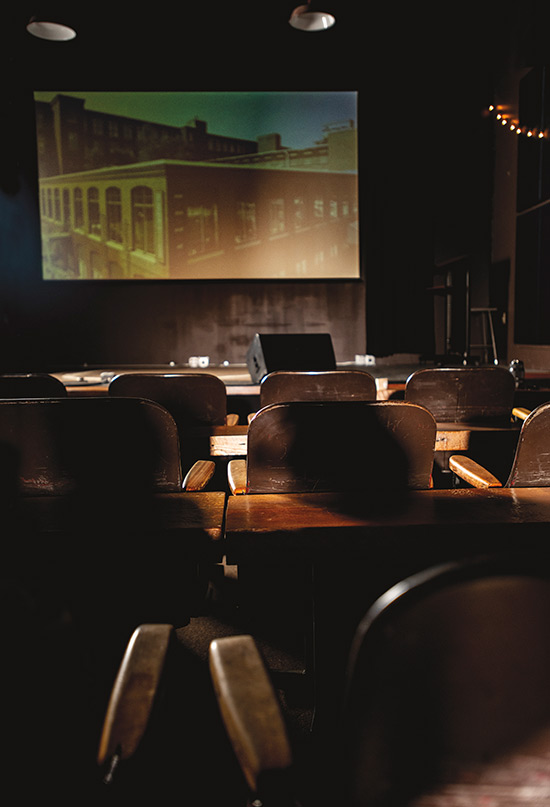
The movie offerings at Frontier Cinema, part of Frontier Café in Brunswick’s Fort Andross Mill complex, are as eclectic as its space—primarily independent, foreign, and art films, and documentaries.
Aviva Briefel
When I first moved to New York City from Paris as a little girl, my parents took me to watch the original Star Wars. I was still learning how to speak English, but somehow I understood everything, and I was enthralled. Or rather, I’m not sure if I understood everything, but I realized that Princess Leia was the best thing ever, and I couldn’t stop talking about her afterward.
My favorite summer movie experience is going to a super-air-conditioned movie theater on a really hot day and watching a horror movie. There’s something really visceral about the combination of fear and relief (from the AC). And when the air conditioning gets to be too much, as it inevitably does, I wrap myself in a sweater and pretend it’s winter.
Most recently, I would have to say Jordan Peele’s Us has the best surprise ending. I’m not going to include any spoilers, but I didn’t see it coming, and I think it’s a brilliant twist.
Ever since the start of COVID, I’ve been dreaming about returning to the movies. I miss the darkness, the particular intimacy of watching a film with strangers, the popcorn (even the stale popcorn at this point), the strange feeling of stepping out into the world at the end of the film. I also really miss going to the movies with my kids. We watch tons of things at home, but going to the movies still feels like such a great escape.
Aviva Briefel is Edward Little Professor of the English Language and Literature and Cinema Studies.
Camila Papadopoulo ’20
Four years ago, my answer to “What movie could you watch over and over and never tire of?” would have been the Lindsay Lohan version of The Parent Trap. I grew up watching this film with my grandmother while munching on guava-coated cookies every time we visited the Dominican Republic. It is one of the first movies I recall watching from beginning to end. For my screenwriting professor, this sentimental excuse wasn’t enough to win “favorite film.” Four years later, Billy Wilder’s Some Like It Hot is one of the many movies I continue to watch over and over. I watched it for the first time sophomore year. It forced me to rethink the silent section of H-L [Hawthorne-Longfellow Library] as my preferred viewing spot—other studious classmates were not pleased with my loud guffawing a few cubicles over.
The Sixth Sense has the best surprise ending. This film was one of the reasons I signed up for Professor Briefel’s Horror Film in Context class. I was a bit squirmy about the genre. I now consider myself a growing horror film fanatic with many more movies to see and study! Build up the courage to watch this movie!
Camila Papadopoulo ’20 is a graduate student in the film and television production program at the University of Southern California’s School of Cinematic Arts.
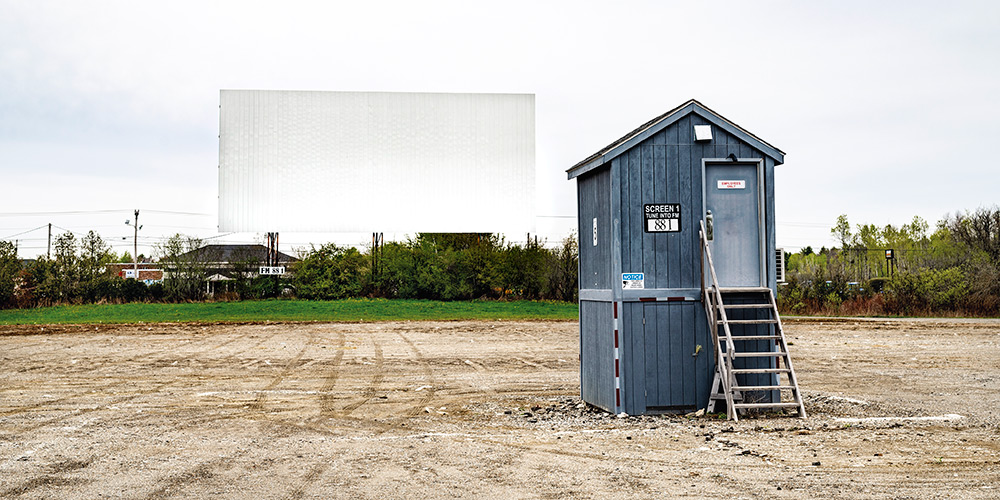
The Bangor Drive-In opened on June 7, 1950, with You’re My Everything and Rusty Saves a Life. The drive-in closed on July 23, 1985, with Rambo: First Blood Part II.
Bart D’Alauro ’95
I find something new to enjoy every time I see the Coen Brothers’ third film, Miller’s Crossing. It has an extremely complex plot that is easy enough to follow on a surface level the first time through, but really requires repeated viewings to notice all its twists and turns and seemingly minor characters who actually have major significance. It’s darkly comic, with terrific hard-boiled dialogue, bravura “How did they do that?” sequences, shocking bursts of violence, compelling questions of ethics, and dense symbology involving hats that I interpret differently with every viewing. It’s my desert island movie.
Starlet, an earlier film by Sean Baker, who made Tangerine and The Florida Project, has one of the best surprise endings I’ve ever seen in a non-genre film. It’s just a quiet indie drama about a young woman who strikes up a friendship with an older woman very different from herself, but the unexpected revelation at the end really packs an emotional wallop and makes you rethink the nature of the whole dynamic between the two characters.
My favorite romantic movie couple is Anna Karina and Jean-Paul Belmondo in Pierrot Le Fou. It doesn’t end well for those crazy kids, but every moment they’re together on screen is magic—two of cinema’s most watchable stars, playing off each other perfectly.
The Black Stallion at the Hellman Theater in Albany, New York, in 1979 is the first moviegoing experience I have a vivid memory of. I went with my friend and his dad to a matinee, and it was the combination of going somewhere without my parents and the intensity of the movie’s fiery opening scene that have forever lodged it in my brain. I saw it for the first time since not too long ago, and it’s still a great movie!
I’ve watched The Graduate at various periods in my life, and my response to it is always different, but it never fails to make me connect to the exact moment in time in which it was made—several years before I was even born. It perfectly captures the existential crisis of “Everything is possible, so now what?” that permeated American youth culture around 1967 and was kind of a rallying cry for all those who felt lost and confused thanks to an emphatic generation clash that aimed to break down all of society’s rules and structures but left many feeling directionless as a result.
I’ll never forget the feverish excitement I felt when The Empire Strikes Back came out in the summer of 1980. My every waking and dreaming moment was focused on how awesome it was going to be. It was a carefully planned outing with the neighbors across the street, with tickets purchased well in advance, but some unexpected delay caused us to show up late and Luke was already hanging upside down in the ice cave when we got to our seats. It was a couple of weeks later before I finally got to see it again and catch the beginning.
Bart D’Alauro ’95 is former owner of Bart & Greg’s DVD Explosion in Brunswick; editor of “Cinema Explosion,” a weekly guide to what movies to watch in the streaming age; cohost of Cinema 60, a podcast tour of films from the 1960s; and an assistant in Hawthorne-Longfellow Library.
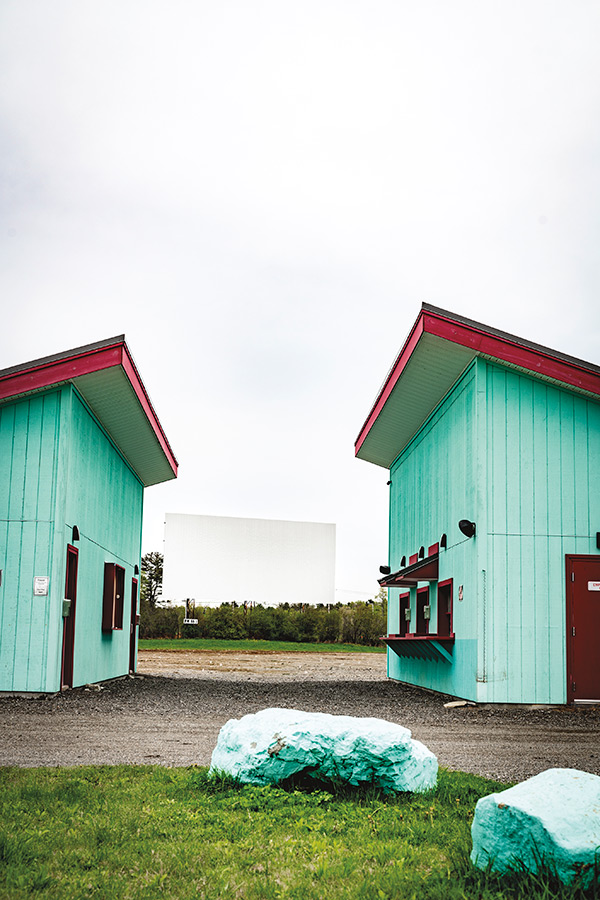
After being shuttered for thirty years, the Bangor Drive-In reopened in July 2015.
Allison Cooper
Vittorio De Sica's Miracle in Milan is a movie I could watch over and over and never tire of. It shares some characteristics with De Sica’s famous neorealist films Bicycle Thieves and Umberto D. in that it focuses on the plight of the poor and disenfranchised in post-World War II Italy, but it does so with so much goodwill, creativity, and generosity of spirit that it is a pure joy to watch. It is a film that lifts its characters up (literally, in the film’s ending sequence!) but that also lifts the spirits of anybody who watches it, and we could all use a little of that after this year.
I was teaching in Italy in the summer of 1996 when The English Patient, a romantic war drama, was released. I had my very first experience of cinema all’aperto (open-air cinema, an Italian summer tradition) when I went to see that film in the public gardens of a beautiful villa in the hills outside of Florence. The gorgeous setting couldn’t have matched the film’s setting and cinematography more perfectly—it was magical!
The original Star Wars debuted in 1977, when my brothers and I were all still in elementary school. My mom knew that it was going to blow our minds and made sure that we’d never forget it. She packed us into the station wagon and drove us to Hollywood, where she got us front-row seats for the show at Grauman’s Chinese Theater. She was right—it totally blew our minds! We were utterly transported for two hours, lost in the story and the worlds it created onscreen. My love for cinema was born that day.
Allison Cooper is an assistant professor of romance languages and literatures and cinema studies.
Shu-chin Tsui
Orson Welles's Citizen Kane is the film that I could watch, analyze, and appreciate all the time. This film taught me so much about film narrative and cinematic language. Seeing Citizen Kane prompted me to think about majoring in film studies, and I have used the film in my classes throughout my teaching career.
Back in my early days in China, we had no movie theaters. Films were shown in public, open spaces, and we had to take our own stools to sit and watch. These summer movie viewings were happy times, as we rarely had a chance to see a film in those days.
A turning point in my higher education occurred one day, as I clearly remember, when I passed by an auditorium and heard a professor talking about a black-and-white Hollywood classic on the screen. The visual images on the screen and the professor’s words drew me to a different world, one where I saw the beauty and power of motion pictures. I started my PhD program in film studies shortly after that.
We should not forget the many wonderful films outside of mainstream films and Hollywood productions, such as independent documentaries and world cinema. Take foreign films, for instance. Parasite, by a South Korean film director [Bong Joon-ho], won the Oscar for best picture in 2020, and Nomadland, by a young Chinese woman director [Chloé Zhao], won best picture this year.
Shu-chin Tsui is a professor of Asian studies and cinema studies.
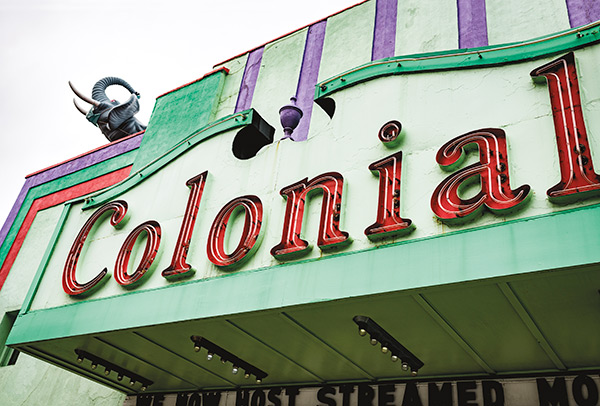
The Colonial Theatre in downtown Belfast opened on the same day the Titanic set sail, and is known for its colorful marquee and life-size rooftop elephant, whose name is Hawthorne.
Finn McGannon ’23
A movie I could watch over and over is The Way Way Back. Definitely a go-to summer movie for me, with the familiar themes of a coming-of-age story done uncommonly well. Great cast also, with highlights of a surprisingly hateable Steve Carell and an unsurprisingly lovable Sam Rockwell.
Anytime I’ve been to the Dreamland Theater on Nantucket counts as my favorite summer movie experience! Seeing a big new release in the middle of a packed, energetic summer crowd—doesn’t get any better than that.
Junior Mints are really in a league of their own at the concession stand.
Emily Staten ’22
Jiro Dreams of Sushi gets love from everyone who has watched it (and rightly so), but I really wish it was more widely known. It’s beautiful, and such a careful look at a very interesting man. It might be my favorite documentary film of all time.
The best surprise ending has to be The Usual Suspects. The way the whole story comes together—how all the small details are accounted for—made me immediately want to rewatch it and find everything I had missed. Seeing that last ten minutes for the first time was probably one of my favorite movie-watching moments of all time.
Pitch Perfect is my favorite guilty-pleasure movie. My family only had about three TV channels for much of my life, and for some reason Pitch Perfect would always come on around nine o’clock on Friday nights. My dad and I must have watched it about fifty times, even though we would never admit we love it.
Cinema Paradiso! I absolutely love this score (and this movie), and it always makes me feel at home. The love theme is probably my favorite piece of movie music of all time.
Also, Junior Mints. I love Junior Mints.
Finn McGannon ’23 and Emily Staten ’22 are leaders of the Bowdoin Film Society (BFS).
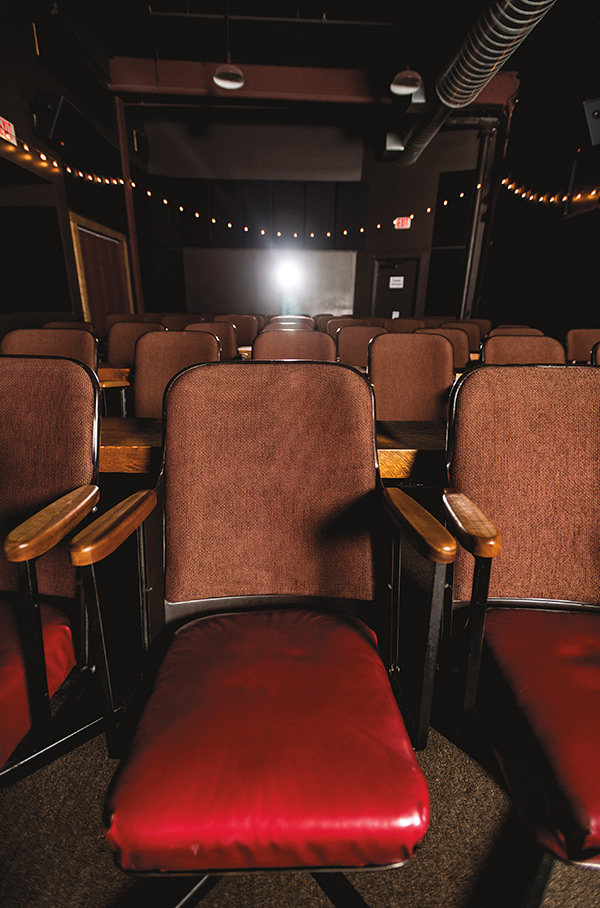
Brunswick’s Frontier Cinema was renovated with many recycled materials and features vintage seats from the old Biddeford City Theater in Biddeford, Maine.
Anthony Walton
FOR ME, the best surprise or twist ever was the ending of The Sixth Sense. I’ll never forget the day it opened, being in line to go into the theater, seeing folks come out of the screening in shock, then some of them getting in line to buy another ticket, go back in, and immediately watch it again. They needed to try to figure out how they had been “deceived,” and after I watched the film I felt exactly the same way.
I have two favorite movie quotations, which are variations on the same idea: “We all got it coming,” from Unforgiven, and “Everybody has his reasons,” from The Rules of the Game. I remember being stunned by the compressed truth and the generous compassion of each statement. Each of those lines revealed new retroactive insights on the characters and story, and changed how you saw the rest of the film. And each line in context is profoundly moving—and beyond, the film is a tremendous lesson for human life.
I would say Chinatown is the best screenplay. The way that Robert Towne utilizes a form that we think we know (private-eye story) and exploits every convention of that form, while also using our knowledge of the form against us as we watch. It’s full of jokes, sly asides, mean wisdom about our society, and heartbreaking truths about the relations between men and women—the ways they fool each other, and in so doing, fool themselves. In a more purely mythic realm, I think David Webb Peoples’s screenplay for Unforgiven is one of the greatest achievements ever by an American writer in any genre—film, poetry, fiction, or theater. It’s Shakespearean in its epic truth about our society, then and now; and about the private lives of men, how much men need women but also treat them with the most casual and brutal cruelty. And, like all great literature, that script contains more truth now, in 2021, than when it was written.
It is crucial, for any number of reasons, that our film and television industries continue to open up to African Americans and all other people of color, whether in terms of who they employ, or what stories are created and featured. The careers of Spike Lee, Chloé Zhao, Edward James Olmos, and Denzel Washington are examples of what is brought to film and television when it is open to everyone.
Anthony Walton is senior writer in residence at Bowdoin. A screenwriter himself, he teaches Character, Plot, Scene, Theme, Dream: The Fundamentals of Screenwriting, a course cross-listed between the cinema studies program and English department.
Séan Alonzo Harris is an award-winning commercial, fine art, and editorial photographer living in Waterville, Maine. See more of his work at seanalonzoharris.com.
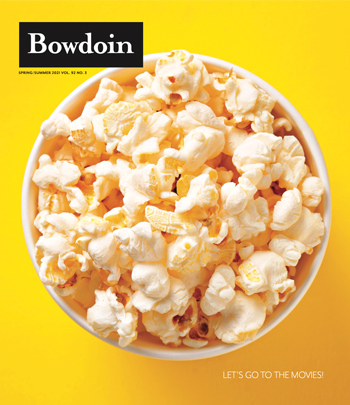
This story first appeared in the Spring/Summer 2021 issue of Bowdoin Magazine. Manage your subscription and see other stories from the magazine on the Bowdoin Magazine website.